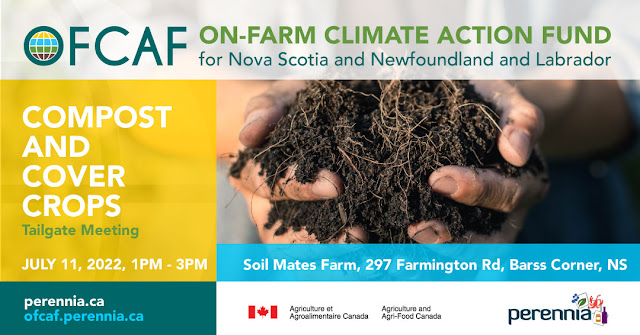As we’re in the midst of planning for the coming season and reassessing potentially fool-hardy plans made with the best intentions but rosiest of glasses, I wanted to write a quick post to touch on the idea of compost/organic matter amendments and the residual nutrient credits they provide year after year.
Organic amendments such as composts and manures are
fantastic additions to your farm. They increase organic matter (OM), improve
moisture holding capacity, help with nutrient cycling, promote microbial
activity, and help to feed your soil. Organic amendments are, however,
challenging to work with; they’re inherently variable, heavy to schlep around,
and release nutrients over years which makes nutrient management planning
difficult.
If you applied
compost last year, or for the last 3 years in a row, it’s worth remembering
that mineralization of nutrients from those applications is still occurring.
Considering this whilst planning how much to apply in 2023 could save your
back, your wallet, and prevent overloading your system with nutrients (most
often phosphorous and salts). The specifics of each compost vary widely and temperature,
source material, product maturity, etc. all effecting field conditions. Generally,
solid organic amendments will release less than half of their nutrients the
first year and the rest slowly over the next 5-10 years. It's easy to forget
about the residual nutrients within your system!
There are only a couple of pieces of information you need to
start understanding the nutrients within your organic matter applications: The
source of your amendment (animal /plant/fungi as well as maturity), how much
you apply per season, and how many years you have been applying it. With this
information and a couple of excellent resources (linked below) you can develop
a sustainable nutrient management plan that allows you to maintain or increase
your soil OM levels without overloading your system.
How
to interpret a compost analysis report
Nutrient
Management Planning for Organic Systems
One last word on composts: don’t be afraid to mix things up.
By changing the source of compost that you apply, you can help balance your
system. For example, if you routinely apply animal-based composts, switch to
mushroom, plant, or sea-based composts and vice-versa. There are some
excellent local compost producers in Nova Scotia and your soil will perform
better on a balanced diet.
Tim M
References:
Fig 1: Char application restores soil carbon and
productivity, American Society of Agronomy, https://www.eurekalert.org/news-releases/650195
How to interpret a compost analysis report: https://ofcaf.perennia.ca/wp-content/uploads/sites/19/2022/11/How-to-Interpret-a-Compost-Analysis-Report.pdf
Nutrient management Planning for Organic Systems: https://projects.sare.org/wp-content/uploads/1166nutrient-management.pdf






